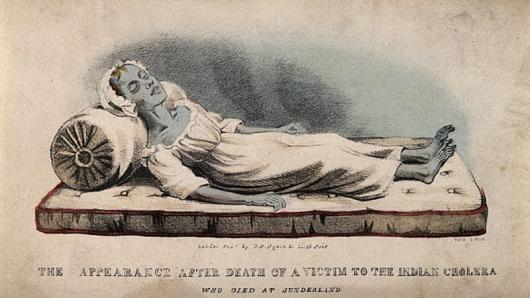Description
Over the next six weeks, you will learn about the International Health Regulations (IHR), its history and evolution, its major principles and implementation procedures, as well as challenges and future opportunities. We will discuss the lessons learned from previous epidemics and natural disasters, as well as potential future health threats and how to respond to them in an efficient and timely manner. The goal of this MOOC is not only to increase public awareness of the IHR, but also to assist international health practitioners in advancing its implementation, thereby contributing to the achievement of the Sustainable Development Goals.
Every week, you will gain access to a new Module, which will include a series of video lectures as well as a list of recommended readings to help you further your understanding of the proposed topic. Every module will include a variety of practise exercises, such as in-video questions and practise quizzes based on the video lectures and readings, as well as a graded quiz to review everything you've learned. At the end of the course, you will be asked to take a graded final quiz, which you must pass (along with the graded quizzes in each Module) in order to pass the course and earn a Certificate if you selected this option at enrolment.
We encourage you to use Discussion Prompts and forums to discuss course material with other MOOC students. You can make a significant contribution to the learning process by posting questions, leaving comments, or sharing personal experiences and examples from your countries.
Syllabus :
1. Introduction and course outline
- Learning objectives and course structure. IHR 3.0 Simulator - Dr. Antoine Flahault, Aude Richard
- Importance of the IHR in ensuring global health security: introduction through concrete examples - Dr. Antoine Flahault, Aude Richard
2. Historic perspectives. IHR Articles & Procedures
- History behind the International Health Regulations - Prof. Patrick Zylberman
- Creation and evolution of the IHR - Prof. Stéphanie Dagron
- Principles and goals of the IHR - Prof. Stéphanie Dagron
- National Core Capacities Required for Surveillance and Response (Annex 1) - Prof. Stéphanie Dagron
- Event notification and communication with the WHO (Annex 2) - Prof. Stéphanie Dagron
- Role of the WHO in the IHR implementation - Prof. Stéphanie Dagron
- Institutional arrangements around the IHR - Prof. Stéphanie Dagron
3. Intersectorality of the IHR - Part 1. Health threats covered by the IHR
- Multisectoral and transdisciplinary collaboration around the IHR. Human health and animal health - Dr. Guénaël Rodier
- Zika lessons - Dr. Alfonso J. Rodriguez Morales
- Climate change and vectors - Dr. Alfonso J. Rodriguez Morales, Florence Fouque
- SARS epidemic through the IHR lens and lessons learnt - Prof. Patrick Zylberman
- Ebola lessons - Prof. Patrick Zylberman
4. Intersectorality of the IHR - Part 2. Mobility, trade and national security
- Introduction to mobility and trade - Dr. Guénaël Rodier
- Capacities required at points of entry - Gilles Poumerol
- Public health measures in mobility and trade - Gilles Poumerol
- Health documents in international traffic - Gilles Poumerol
- Obligations of WHO and other entities - Gilles Poumerol
- Economic considerations - Vanessa Candeias
- National security and other considerations - Dr. Guénaël Rodier
5. National planning, monitoring and evaluation
- IHR Monitoring Framework - Dr. Guénaël Rodier
- Joint External Evaluation (JEE) and national planning - Dr. Guénaël Rodier
- IHR-PVS National Bridging Workshop - Dr. Guénaël Rodier
- Procedures in practice - Prof. Benoit Vallet
- Example of the plague outbreak in Madagascar - Prof. Benoit Vallet
- Procedures in practice - Dr. Timo Buetler
- Example of Swiss NFP daily work - Dr. Timo Buetler
- Legal epidemiology pilot project for accelerating the implementation of the IHR (2005) in the European region - Géraldine Marks
6. Challenges in the IHR implementation. Ebola and the WHO reform
- Challenges in implementation of the IHR - Gian-Luca Burci
- Critiques of the IHR - Eduardo Hage
- Does the IHR address human rights and privacy issues? - Dr. Andraž Zidar
- Programmatic reforms - Dr. Suerie Moon
- Institutional reforms, gaps and open questions - Dr. Suerie Moon
- National health systems, humanitarian aid, R&D - Dr. Suerie Moon
- Knowledge sharing, trade and travel - Dr. Suerie Moon
- Financing, leadership and monitoring - Dr. Suerie Moon
7. Conclusion and final quiz
- Conclusion - Aude Richard









